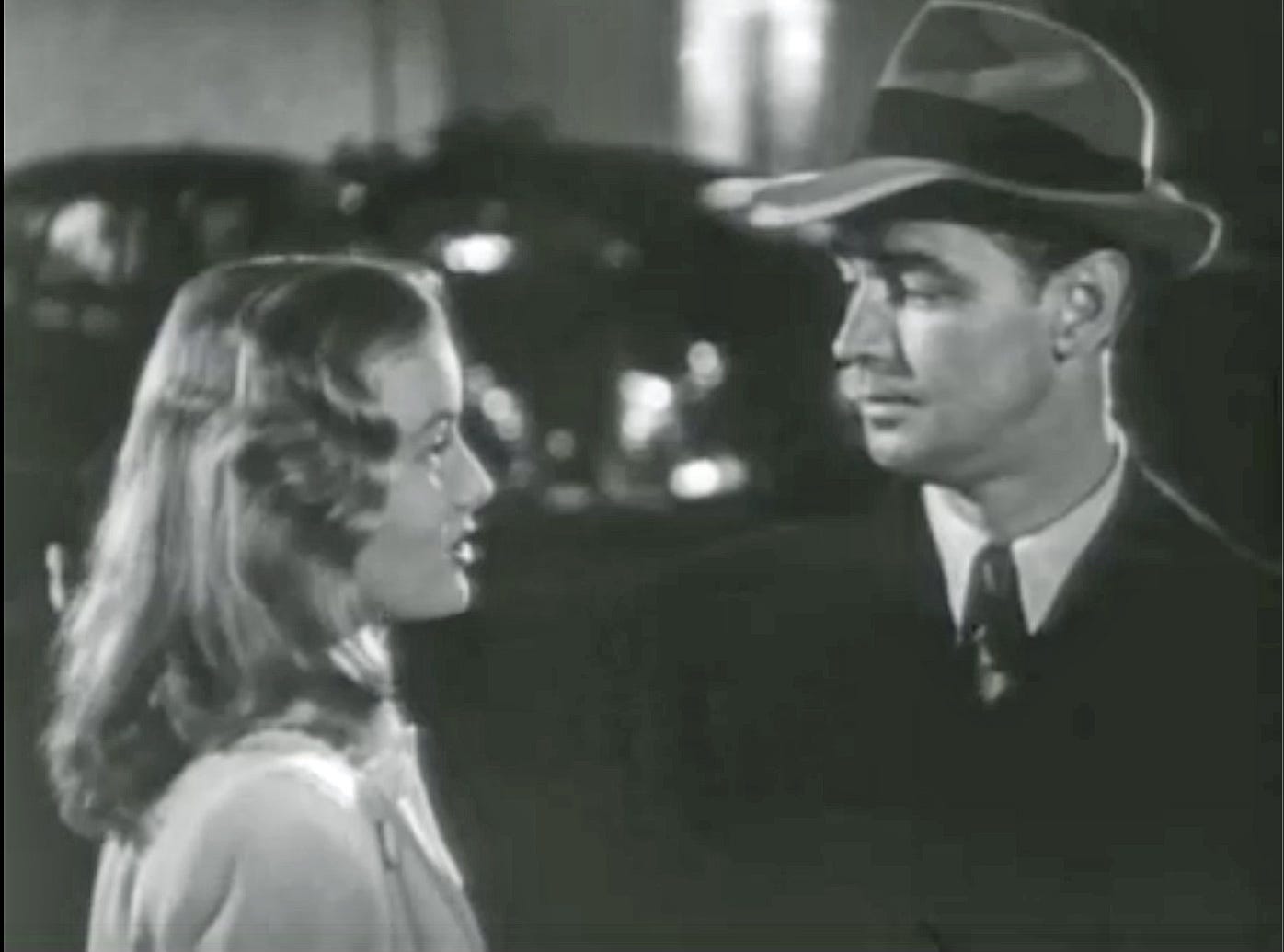“So, as the big, generic boxes go up, the traditional feel and authentic character that initially drew people to Maine becomes bastardized, homogenized and irretrievably lost. What should we do? Frankly, I don’t know.” – Maine Voices column in Portland Press Herald, Nov. 25, 2023
Back when I first opened shop as the Midcoast’s only circa-1930s hardboiled detective, I had a bunch of cards printed. They said, “No case too big, no case too small.” Actually, because of a typo, they said, “No case too big, no cast too small,” which led most people try to make sense of what they assumed was an attempted pun—some asked if I was a fishing detective and others thought my line was tracking down medical records involving tiny bones. Really, though, the thing that finally led me to take a black Sharpie to my business cards was when a kid tried to hire me to find the ringleader of his flea circus. Some cases are too small.
And if I’d known about Valentina Morosky then, I would have crossed off the “No case too big” line at the same time.
She came into my office while I was riding high on having solved a case of misused produce some months prior. It was the early morning hours of Small Business Saturday, and I was in the middle of trying to break my record for most biscotti in my mouth at one time when I heard her high heels on my faux-parquet floor. Faux-rquet, I call it, but most people don’t understand until I show them in writing. I looked up and gave her a once-over. She had the type of body your uncle Morris likes to draw on stalls in the men’s room, and her lips were the kind of lips that some people sometimes think about kissing. I noticed her eyes were swollen as if she’d been touching them with wasabi-dipped fingers or perhaps crying.
“Ughamagga?” I asked, my voice soft with soothing compassion.
“What?” she said.
I swallowed two biscotti whole, spit out six, and choked on the remaining four until two of them shot out my nose and disappeared God knows where. My mouth free but for chunks and crumbs and the absurd amount of saliva you produce whilst holding twelve biscotti between your cheeks, I repeated, “What’s the matter?”
“Well, you’re so disgusting,” she said.
“Right,” I said, “but what I mean is, ‘Why have you come to my office?’”
“Oh,” she said, looking down at her feet as though remembering the grief that had brought her here, or maybe thinking about how painful her shoes were. “My name is Morosky, Valentina Morosky, and my hometown has gone missing.”
“Something as large as a town will be easy to find,” I averred.
“You might aver so,” she replied, “but I have the feeling it’s being bastardized, homogenized, and irretrievably lost.”
“If it’s irretrievably lost,” I said, “there’s a slight chance I won’t be able to find it.”
“But your business card says—”
And so she had me. She went on to describe a once-charming little burg built on a hilly peninsula jutting into Casco Bay. Straight away, we got into her Cabriolet and went out looking for it. I suggested we check the old fish market down on the wharf and the dive bar on the downslope of the hill. We got a whiff of something familiar at the fish market, but the dive bar had, to the overwhelming relief of everybody who lived within a three-block radius, shuttered long ago. We drove around to some more old sites—the cemetery, the seminary, the penitentiary, the special penitentiary for graduates of the seminary, and the special cemetery for graduates of the penitentiary—and while we searched hither and yon for signs of that cradle of her youth, she told me her story.
Valentina Morosky had grown up in the city in the 1980s and ’90s, and although she had a happy childhood, she also had your typical American girl’s dreams of making it big in the hog trade. So, Valentina left home to build a pig-centric career in the grand metropolises of Cincinnati and Chicago. Twenty years in the pork industry went by in the blink of an eye, and all the while she’d had thoughts, fleeting at first but by and by irresistible, of quitting big ham and moving home to Maine. When she finally made it back, she found rents even higher than she’d seen in Chicago and new buildings were shooting up everywhere, buildings that somehow did nothing to cool skyrocketing housing costs but did plenty to bastardize and homogenize the little city by the bay, and she’d be damned if it didn’t feel a bit as though it were also getting irretrievably lost. She moved to a town up the coast and kept her eye out for the city, which, yup, was irretrievably lost. And then she saw a glimmer of hope in the form of my business card.
By the time she’d filled me in on her history, we were back at my office. We looked out the window at a construction project—overpriced new condos designed to sell people on the idea that living here could be just like living in Cincinnati or Chicago or even that little city that was replacing the one where my client had grown up.
“Ms. Morosky,” I said. “Did it ever occur to you that just about everywhere and everything in all of life is being bastardized, homogenized, and irretrievably lost?”
“Well, yes, of course,” she said. “But what should we do?”
“Frankly,” I said, “I don’t know.”
And we each went out to see about scooping up a couple of those new condos. Some of us are going to get irretrievably rich.

